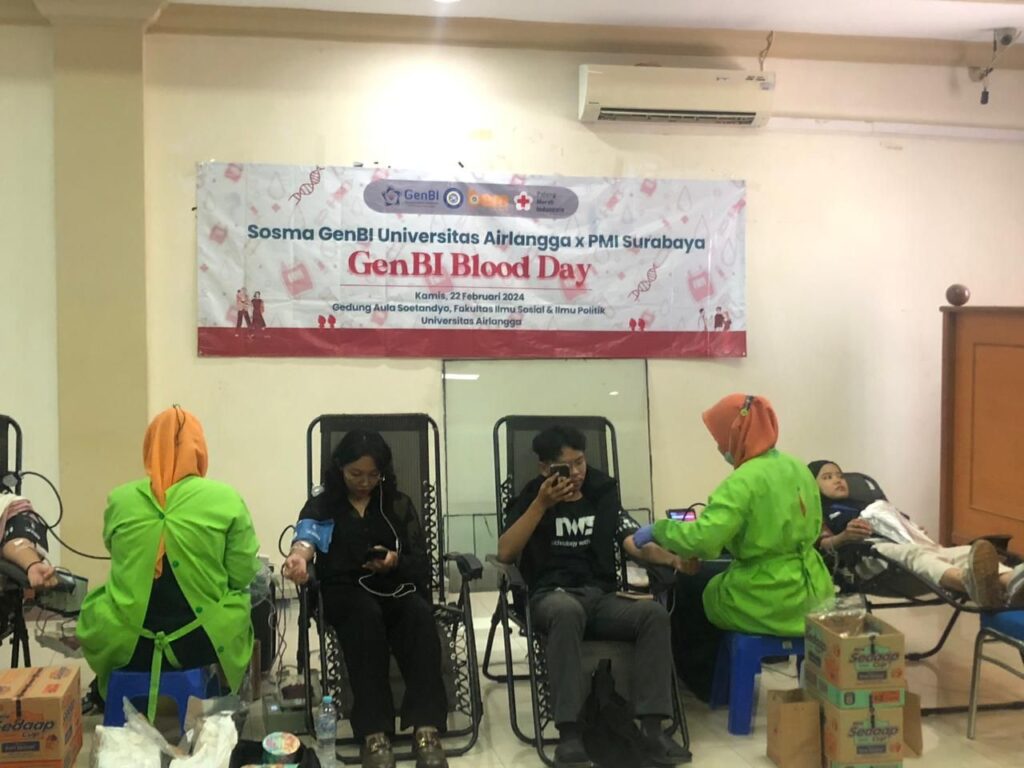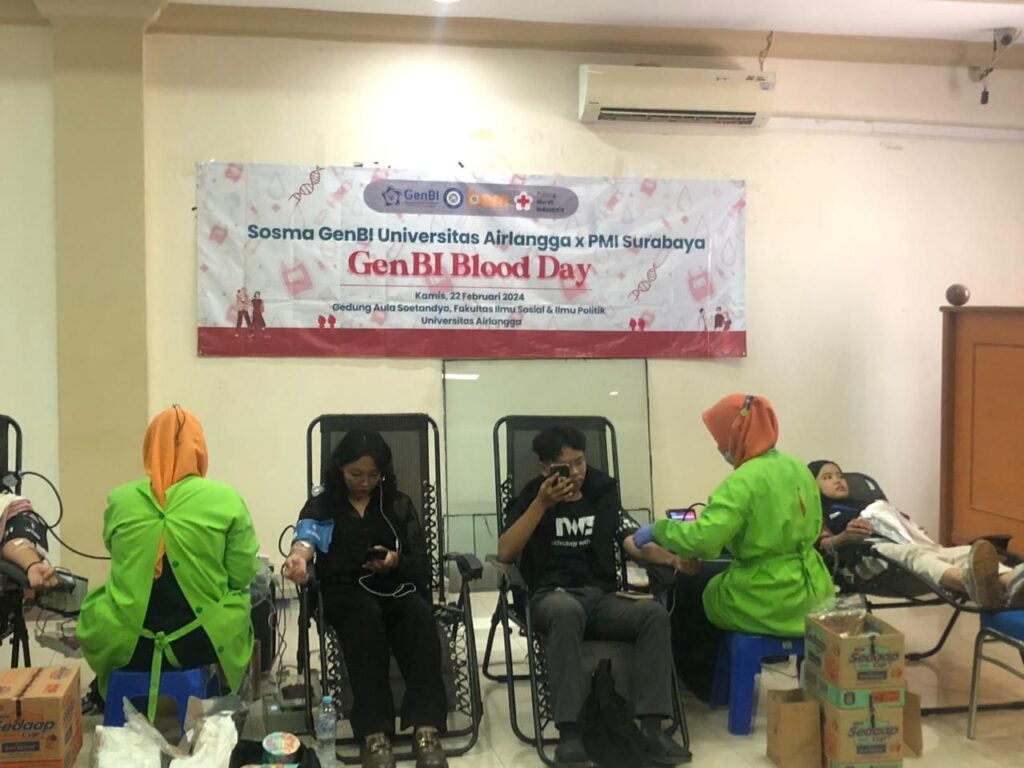
SURABAYA – ADM WEB | The Executive Board of Students (BEM) of the Faculty of Social and Political Sciences, Airlangga University (FISIP UNAIR), successfully organized a blood donation event in collaboration with the New Generation of Indonesia (GENBI) UNAIR.
The event, titled ‘GENBI Blood Day X Ministry of Social Environment MASDONAR,’ took place at the Soetandyo Auditorium, FISIP UNAIR, on Thursday (22/02/2024).
GENBI itself is a community consisting of students who receive scholarships from Bank Indonesia under the auspices of Bank Indonesia.
The blood donation activity is an annual event included in the agenda of the Social and Environmental Ministry’s work program (proker) of the Executive Board of Students (BEM) FISIP UNAIR.
The blood donation proker of BEM FISIP has collaborated with various parties, and this year, it collaborated with GENBI UNAIR. This collaboration originated from an offer from the Social Community division of GENBI UNAIR to conduct a joint blood donation activity held at the Soetandyo Auditorium, FISIP UNAIR.
Fara, as the chief organizer of the event ‘GENBI Blood Day X Ministry of Social Environment MASDONAR,’ emphasized that this activity is a realization of upholding the Tri Dharma of higher education in the field of community service.
“The purpose of organizing blood donation activities is to address the annual shortage of blood donors in Indonesia and to realize the Tri Dharma of higher education in the field of community service,” said Fara.
Furthermore, the blood donation activity involving BEM FISIP and GENBI UNAIR engaged various parties, from FISIP UNAIR students to the Surabaya Red Cross (PMI). The enthusiasm of FISIP UNAIR students in participating in the blood donation activity was very high.
According to Fara, the Surabaya PMI provided 75 blood bags for donors. However, the number of blood donors exceeded expectations, with some participants showing up without prior registration. Nevertheless, this issue was addressed as some participants did not meet the blood donor criteria.
In conclusion, Fara expressed hope that this activity could help those in need of blood donors and serve as an educational platform for students about the importance of blood donation.
“As reported on the Indonesian Ministry of Health’s website, the country needs 5 million blood bags every year. However, the number of donors is only around 4 million, so there is still a shortage, and many Indonesians are still hesitant to donate blood. Therefore, the hope is that this activity serves as an educational tool, at least starting from our environment, as there are health and humanitarian benefits,” concluded Fara.
This article reflects the third point of the Sustainable Development Goals (SDGs) proclaimed by the United Nations. (AN).
source
https://unair.ac.id
